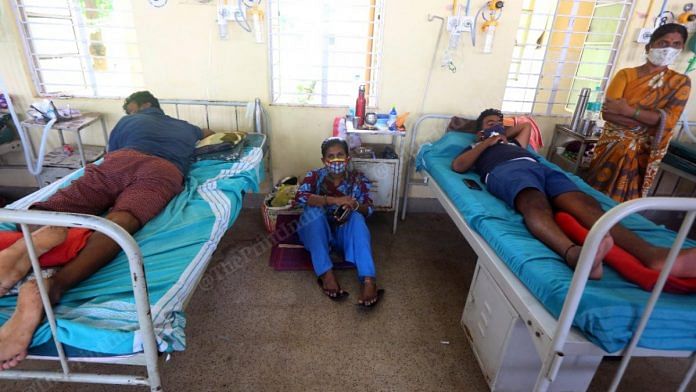This health insurance scheme encompasses more than 1,949 medical and surgical procedures across 27 specialities, including cardiology, oncology, orthopaedics, neurosurgery, and more. However, not all medical services are covered. Exclusions include outpatient consultations, cosmetic surgeries, fertility treatments, organ transplants, dental procedures, and substance abuse rehabilitation.
As private hospitals in Delhi weigh their options, many say they have not received any government proposal to join the revised health insurance scheme. “We have not received any proposal or instructions so far, so no decision has been made,” an Apollo hospital spokesperson told ThePrint on condition of anonymity.
A senior hospital representative of a major southeast Delhi private hospital, which also operates facilities in Agra, said, “Until we receive something official, how can we decide whether to get empanelled [under the scheme] or whether it would even work for us?”
Sir Ganga Ram Hospital, on the other hand, confirmed to ThePrint that it had received a government proposal and that internal deliberations were ongoing. “It is a voluntary decision, and we are still discussing it,” said Director (Medical) Dr (Brig) Satendra Katoch.
As ThePrint reported earlier, as of February 2025, 66 of approximately 1,163 hospitals in Delhi, including public and private facilities, were , receiving services under the National Health Authority. Of these, more than 50 were private.
However, the city’s largest private facilities remained on the sidelines. They expressed concerns that reimbursement rates under AB-PMJAY were too low to cover the costs of specific treatments and would result in financial losses. While the scheme may be viable for nursing homes or smaller hospitals, larger ones viewed it as an “unsustainable model”, given their significant investments in infrastructure, advanced facilities, and medical technology.
Director-General of the Association of Healthcare Providers of India (AHPI) Girdhar J. Gyani told ThePrint that 46 private and 34 Delhi government-run hospitals, already empanelled under AB-PMJAY and offering health services through the National Health Authority under the previous Aam Aadmi Party (AAP) government, will now provide the benefits of the revised scheme under the city health authorities.
Gyani said Delhi hospitals, which had been offering services through the AB-PMJAY portal, are now automatically deemed to be under the city authorities.
“Such hospitals can continue under the scheme—they will be considered empanelled unless they opt out,” Gyani said to explain how several nursing homes and smaller hospitals had effectively come on board the revised scheme.
As for bigger hospitals, Gyani pointed out that their operational costs are substantially higher—ICU care alone can range from Rs 20,000-30,000 per day, depending on medication and facilities required. “The government needs to consider introducing a co-payment model,” he said. In such a model, if the government can only reimburse a fixed amount—say, Rs 20,000 per day for ICU care—the patient should, out of pocket, pay the balance amount.
“This co-payment system works in several other countries,” Gyani said. “However, the Centre is adamant about hospitals adhering strictly to the fixed rates. In that scenario, high-end hospitals that provide advanced procedures cannot recover operating costs.”
He added that while discussions are ongoing with the Centre, the AHPI plans to write to the Delhi chief minister to raise its concerns. AHPI represents nearly 15,000 private hospitals, including Fortis, Max Healthcare, Manipal, Medanta, and Apollo.
“The Delhi government needs to find a way to ensure the release of payments within a month. While rate-setting is the Centre’s responsibility, timely reimbursements are in the hands of the state,” Gyani said.
ThePrint h reached Delhi Health Minister Pankaj Kumar and a National Health Authority spokesperson over calls. This report will be updated if and when they respond.
(Edited by Madhurita Goswami)








